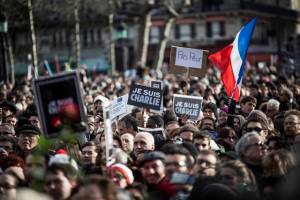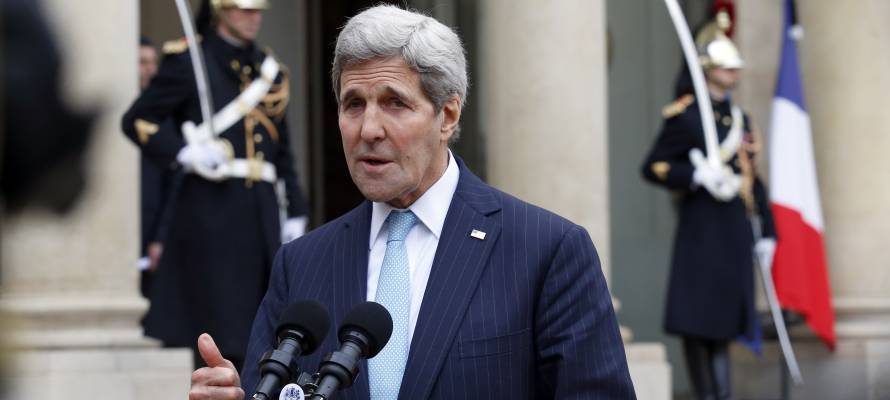
Millions declare “I am Charlie” during a Paris rally. (Photo: Laurence Geai/Flash90)
US Secretary of State John Kerry suggested on Tuesday that there was a “rationale” for the assault on satirical French weekly Charlie Hebdo, unlike the more recent attacks in Paris.
“There’s something different about what happened from Charlie Hebdo, and I think everybody would feel that,” Kerry said in Paris, according to a transcript of his remarks. “There was a sort of particularized focus and perhaps even a legitimacy in terms of — not a legitimacy, but a rationale that you could attach yourself to somehow and say, OK, they’re really angry because of this and that.”
“This Friday was absolutely indiscriminate. It wasn’t to aggrieve one particular sense of wrong. It was to terrorize people,” he continued.
The attack on Charlie Hebdo, which took place in January, killed 12 people and was perpetrated by radical Islamic militants with ties to al Qaeda’s affiliate in Yemen. An al Qaeda statement claiming responsibility for the murders said they were retribution for the magazine’s decision to run cartoons mocking the Prophet Mohammed, and to avenge the drone strike that killed Yemeni-American cleric Anwar al-Awlaki.
Friday’s simultaneous attacks killed at least 130 people and wounded hundreds more, and have been claimed by the Islamic State, which said they were aimed at the “capital of prostitution and obscenity.”
Former Florida Gov. Jeb Bush read comments from Kerry and Hillary Clinton during an event in South Carolina Tuesday. He said that Clinton had called for people to “empathize” with the enemy.
“There should be no empathy and there’s no rationale for barbaric Islamic terrorists who want to destroy Western civilization,” Bush said.
Bush was likely referring to a December 2014 Clinton speech at Georgetown University during which the former secretary of state gave her definition of what she called “smart power.”
“Using every possible tool and partner to advance peace and security,” she said. “Leaving no one on the sidelines. Showing respect even for one’s enemies. Trying to understand, in so far as psychologically possible, empathize with their perspective and point of view. Helping to define the problems, determine the solutions. That is what we believe in the 21st century will change — change the prospects for peace.”
By: Eliza Collins/Politico










